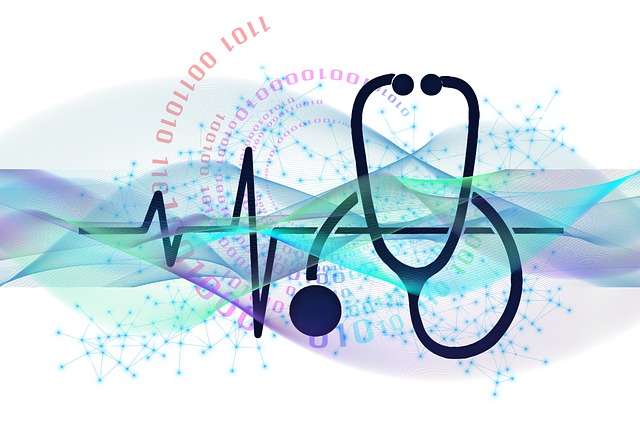Streamlining Healthcare Outreach: The Role of AI Marketing Automation in Patient Acquisition
In the rapidly evolving landscape of healthcare, the integration of artificial intelligence (AI) into marketing strategies is revolutionizing how providers connect with and acquire new patients. The power of AI marketing automation lies in its ability to analyze data, predict patient behavior, and personalize communication at scale. Keep reading to delve into the implications of AI marketing automation for patient acquisition and the future of healthcare marketing.
Understanding AI Marketing Automation in Healthcare
AI marketing automation is a transformative tool that applies artificial intelligence to streamline and optimize various aspects of marketing. In healthcare, this translates to smarter patient segmentation, automated communication flows, and actionable insights derived from patient data. By leveraging these tools, healthcare providers can ensure their marketing efforts are more efficient, targeted, and effective.
At its core, AI marketing automation focuses on harnessing data-driven insights to anticipate the needs and interests of current and potential patients. This allows for timely and relevant touchpoints that foster stronger patient-provider relationships. With AI algorithms constantly learning and adapting, the accuracy of targeting and messaging continually improves, offering an enhanced patient experience.
The incorporation of healthcare AI business solutions into outreach efforts is also saving time and resources. By automating redundant tasks such as email campaigns and patient follow-ups, staff can dedicate more efforts toward direct patient care and other high-impact areas of the healthcare system.
Enhancing Patient Acquisition Through AI-Driven Outreach
Acquiring new patients is a critical challenge for many healthcare providers, but AI marketing automation provides a strategic advantage. Through advanced analytics and machine learning, AI can identify potential patient populations based on demographic, psychographic, and behavioral data – providing a granular approach to outreach that traditional methods can’t match.
The use of AI also aids in crafting highly personalized messages that speak directly to an individual’s healthcare concerns or interests. This level of personalization breeds trust and lays the groundwork for a strong patient-provider relationship. A prospective patient is more likely to engage with a provider who demonstrates an understanding of their unique needs.
Moreover, AI-driven outreach is not confined to digital advertising and email marketing. It encompasses a broad spectrum of channels, including social media, search engines, and even personalized content recommendations on providers’ websites. By being present across multiple touchpoints, AI ensures that healthcare providers remain top-of-mind for potential patients.
Personalizing Patient Communication With AI Technology
Personalized communication is no longer a luxury but a necessity in healthcare marketing. AI technology enables providers to tailor interactions based on past patient behaviors, preferences, and even sentiment analysis derived from interactions. This degree of personalization makes each patient feel seen and heard, thereby increasing engagement and satisfaction.
AI also can automate appointment scheduling and reminders, which not only improves patient compliance but also fills gaps in providers’ schedules. By anticipating and reducing no-shows, AI-powered systems optimize clinic operations and support timely, personalized follow-up communications that encourage rescheduling.
Patient communication needs to evolve, and AI helps in maintaining relevance. As AI systems gather more interaction data, they can make informed decisions about the types of content and offers that are most likely to elicit a positive response. This ongoing optimization ensures that patient communications are always fresh and engaging.
Measuring Success: AI Analytics in Healthcare Marketing
The true measure of a successful marketing campaign in healthcare lies in the ability to track performance and outcomes. AI analytics go beyond basic metrics, offering deeper insights into patient acquisition costs, lifetime value, and engagement rates. These analytics empower healthcare marketers to make data-driven decisions and continuously refine their approaches.
Advancements in AI also make it possible to predict the impact of marketing actions on specific patient segments. With predictive analytics, healthcare providers can forecast the success of particular campaigns, helping to allocate resources effectively and avoid wasteful spending. This level of foresight is invaluable in a landscape where patient acquisition strategies must demonstrate clear ROI.
Moreover, AI-driven reporting tools can automate the generation of comprehensive dashboards, giving healthcare marketers and executives an integrated view of marketing performance across multiple channels. Having this consolidated data at their fingertips allows for rapid, informed decision-making, providing a competitive edge in patient acquisition strategies.
Overall, the integration of AI marketing automation into healthcare outreach is redefining how providers attract and retain patients. By leveraging these advanced tools, the healthcare industry is set to witness a transformation in patient acquisition and engagement, ensuring a dynamic future for both providers and patients alike.

